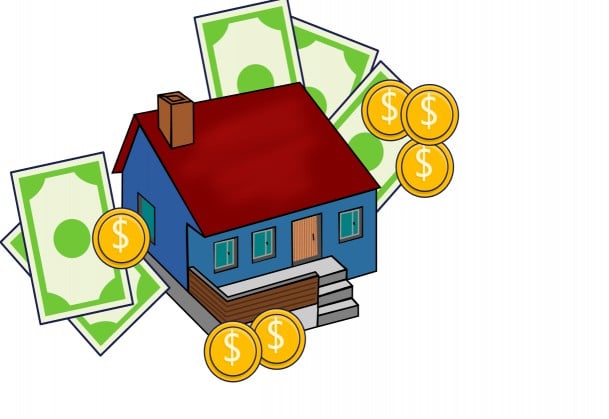Mortgages are loans used to buy or maintain a house, real estate, or a piece of land. The borrower intends to repay the lender over time, usually in the form of a series of regular installments that are separated into interest and principal. The property is then used as security for the loan.
Since the lender can repossess the property if you default on a mortgage, it is a relatively safe loan for lenders to make.
How Does a Mortgage Work?

Similar to other loans, a mortgage is issued by the lender to the borrower for a fixed time, and then the borrower repays it with interest.
The fact that mortgages are secured by real estate makes them slightly different from other types of loans. As a result, the lender receives a lien on the property and has the right to foreclose if you don't make your loan payments.
Every mortgage has specific conditions that every borrower should know.
- Loan Amount: The amount that a borrower takes from a lender is the loan amount. Depending on the type of loan a borrower uses, the loan amount is typically between 75% and 95% of the acquisition price of the borrower's house.
- Loan Duration: The loan duration indicates how long a borrower has to repay the loan. The most popular mortgage loan periods are 15 or 30 years.
- Amortization. This approach, which combines interest and principal payments, is how a borrower pays off his mortgage over time. Most loans are fully amortized, which means they will be repaid at the end of the loan term. However, the amortization may be longer than the duration of your mortgage is partially amortized.
- Interest Rate: The price of borrowing money is the interest rate. Mortgage rates typically range from 3% to 8%. However, borrowers with credit scores of at least 740 receive the best deals on house loans.
- Mortgage Points. The upfront costs a borrower pays to reduce the interest rate on his loan are known as mortgage points. A borrower can reduce his overall loan interest costs by paying these mortgage fees. It's crucial to review the terms of your loan because certain mortgages do not charge points.
When a lender lends someone a mortgage, the loan will be repaid over a specific time. However, a borrower can repay loans early. In some circumstances, lenders may assess prepayment penalties, but they are uncommon for most house loans.
Types of Mortgage

There are numerous types of mortgages. A borrower can use a variety of mortgages depending on the kind of home he is buying, the borrowing amount, credit score, and the amount of a down payment he can afford. Which mortgage option is best for you will depend on your financial situation and the goals you have for your loan.
Numerous home loan programs, including those from the U.S. Department of Agriculture (USDA), Veterans Affairs (VA), and the Federal Housing Administration (FHA), are offered within the range of durations. These loan programs are available for particular populations that may not offer the income, down payments, or credit scores necessary to qualify for conventional mortgages.
The following are the most well-known types of mortgages:
- Fixed-Rate Mortgage
An interest rate of a fixed rate mortgage is determined before the loan is closed and remains the same for the loan duration, which is often up to 30 years.
Longer durations generally result in higher total costs but smaller monthly payments. Shorter loans charge more every month but are less expensive altogether.
Regardless of your loan duration, the interest rate will remain the same for the mortgage duration. For people who like a consistent monthly payment, fixed-rate mortgages are an excellent option.
- Adjustable Rate Mortgage (ARM)
A loan with an interest rate that adjusts after the initial few years—typically five, seven, or ten years—is known as an adjustable-rate mortgage (ARM). The interest rate will usually vary every year after the initial adjustment. Based on several variables, the interest rates of a loan may rise or fall.
With an adjustable-rate mortgage, rates are predicated on a fundamental variable, such as the prime rate. Technically, when rates change, borrowers may experience a decrease in their payments, although this is extremely uncommon. People who don't intend to keep a house for a long time or want to refinance at a fixed rate before their interest rates adjust are more likely to employ ARMs.
- Reverse Mortgages
Reverse mortgages are a completely distinct financial instrument, as their names indicate. They are created for homeowners who are 62 or older and want to pay in on a portion or all of the equity in their properties.
These homeowners can get credit based on home value and take out loans through lines of credit, lump sums, or regular monthly payments. The loan sum is due when the borrower passes away, leaves the property permanently, or sells it.
How to get a mortgage
Mortgage lenders should give consent to potential borrowers following an underwriting and application method. Only individuals holding more assets and income in relation to their liabilities to practically maintain the home value are issued home loans. The decision to issue a mortgage loan also reflects a person's credit score.
Numerous financial institutions offer mortgages. Credit unions and banks frequently issue home loans. You can also get a mortgage through a specialized mortgage company that only works with mortgages for lands or houses.






